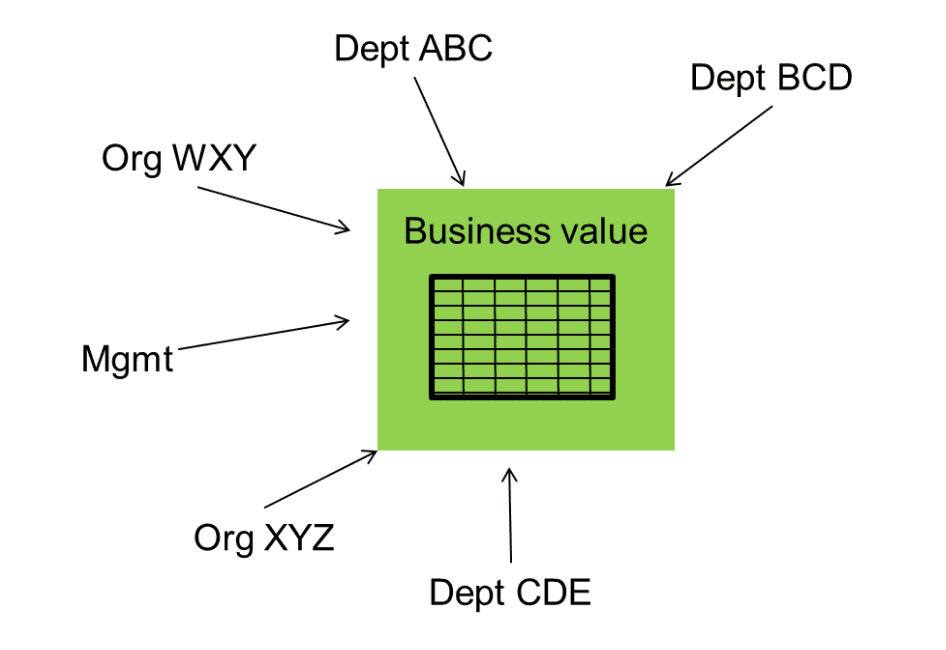 For a hundred reasons, the spreadsheet have become a ubiquitous commodity in the corporate landscape. Perhaps the most pervasive of these reasons is that the spreadsheet allows the end user – the non-technician – to have control over his/her technical destiny. The spreadsheet is malleable, controllable and inexpensive. Those traits allow the end user to take control. The IT person is not needed in order to build and control the spreadsheet.
For a hundred reasons, the spreadsheet have become a ubiquitous commodity in the corporate landscape. Perhaps the most pervasive of these reasons is that the spreadsheet allows the end user – the non-technician – to have control over his/her technical destiny. The spreadsheet is malleable, controllable and inexpensive. Those traits allow the end user to take control. The IT person is not needed in order to build and control the spreadsheet.
There are other reasons why the spreadsheet is so pervasive, but autonomy of processing by and for the end user has to be at the head of the list.
There are many types of spreadsheets. Fig 1 shows some of the more common types of spreadsheets –
Some spreadsheets are very personal. A very personal spreadsheet may have the football scores of your favourite team. Or the names of the children you are going to invite to your child’s birthday party. There is NO business import to a very personal spreadsheet.
Some spreadsheets are business informal. In a business informal spreadsheet, you may keep track of inventory or expenses or days off for sickness or personal time for people working in your department. While there is business import for these spreadsheets, the informality of the business spreadsheet makes the usage of the spreadsheet unusable beyond the immediate walls of the department.
Then there are formal business spreadsheets. These formal business spreadsheets may cover quite a bit of ground. A formal business spreadsheet might be for corporate revenues, corporate expenses, customer purchases, inventory, and so forth.
Indeed, the different types of spreadsheets can be arranged in a spectrum, as seen in Fig 2 –
Fig 2 shows that there is a continuum of spreadsheets all across the corporation. The spectrum goes from informal to formal spreadsheets. As the formality of the spreadsheets increases so increases the nonrecurring/ recurring nature of the spreadsheets. Most really informal personal spreadsheets are nonrecurring. And the more formal and business-related the spreadsheet, the more the likelihood that the spreadsheet is recurring.
And as spreadsheets become formal and recurring, the spreadsheets tend to contain more business value. Fig 3 shows where business value starts to appear in the spectrum of spreadsheets.
There is a lot of potential business value to the spreadsheets found to the right of the spectrum. But the greatest business value is derived when the spreadsheets are turned into corporate data. When the business value oriented spreadsheets are turned into corporate data, there are several major benefits to the organization.
The first benefit is that the organization can start to use the spreadsheet data on a widespread basis.
Fig 4 shows this benefit –
When a spreadsheet that has business value is turned into corporate data, it is open for usage by anyone that needs to see the data. As long as the spreadsheet remains just a spreadsheet, only a few people and a few departments can use the spreadsheet. But when the spreadsheet is turned into corporate data –a standard database — people can access and use the data base across a wide spectrum of users. So the first value in turning spreadsheet data into corporate data is that of widespread accessibility throughout the corporation.
But, there is a second major advantage to turning spreadsheet data into corporate data, and that benefit is that when there is a need to communicate information from one company to the next, the spreadsheet becomes the lingua franca. Fig 5 shows that spreadsheets are an effective way to communicate information from one corporation to another –
When one corporation has a need to transmit information to another corporation, the spreadsheet become the means by which the communication is made.
Bill Inmon – the “father of data warehouse” – has written 57 books published in nine languages. Bill was named by ComputerWorld as one of the ten most influential people in the history of the computer profession. Bill lives in Castle Rock, Colorado.
Bill’s latest book is TURNING TEXT INTO GOLD, Technics Publications, a book that shows how text can be turned into business value. TURNING TEXT INTO GOLD is available on Amazon.com.











































































































